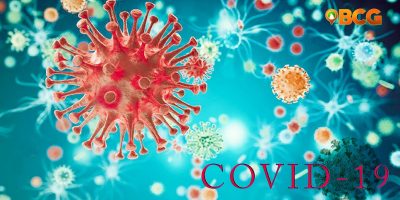Cancer Cells Killed in Lab Experiments via “Trojan Horse” Approach, Say Researchers
Researchers at the Nanyang Technological University, Singapore (NTU Singapore) have killed cancer cells in lab experiments and reduced tumor growth in mice using a new approach that turns a nanoparticle into a “Trojan horse” which causes cancer cells to self-destruct. This has been announced by NTU Singapore on September 23, 2020, through a media release.
The “Trojan horse” nanoparticle was created by the researchers by coating it with a specific amino that cancer cells rely on, along with other similar amino acids, to survive. This amino acid is the L-phenylalanine.
L-phenylalanine cannot be made by the body. It must be absorbed from food such as meat and dairy products.
As suggested by other research teams, cancer tumor growth can be slowed or even prevented by “starving” cancer cells of amino acids. Depriving cancer cells of amino acids, as believed by scientists, may be viable ways to treat cancer.
This can be done through fasting or through special diets lacking in protein.
However, dietary regimes as such would not be suitable for every patient. Thus, NTU Singapore researchers’ have devised a new alternative approach, which is the “Trojan horse.”
The “Trojan Horse” Approach
Wondering how the “Trojan Horse” approach work? Here’s how it works according to NTU Singapore:
- They took a silica nanoparticle that is “Generally Recognized As Safe” by the US Food and Drug Administration
- Then they coated it with L-phenylalanine
- In lab tests with mice, it killed cancer cells effectively by causing them to self-destruct
“Against conventional wisdom, our approach involved using the nanomaterial as a drug instead as a drug-carrier. Here, the cancer-selective and killing properties of Nano-pPAAM are intrinsic and do not need to be ‘activated’ by any external stimuli. The amino acid L-phenylalanine acts as a ‘trojan horse’ – a cloak to mask the nanotherapeutic on the inside.”
– Dalton Tay, Assistant Professor, from the School of Materials Science and Engineering, NTU Singapore
The nanoparticle, as described by NTU Singapore, is “ultrasmall.” This is since, approximately, it is 30,000 times smaller than a strand of human hair. The researchers call it the Nano-pPAAM which stands for “Nanoscopic phenylalanine Porous Amino Acid Mimic.”
According to scientists, Nano-pPAAM is comparable to conventional chemotherapeutic drugs such as Cisplatin. By testing the efficacy of Nano-pPAAM in the lab and in mice, it was found that it killed about eighty percent (80%) of the breast, skin, and gastric cancer cells.
“With current chemotherapy drug treatment, a common issue faced is that recurrent cancer becomes resistant to the drug. Our strategy does not involve the use of any pharmacological drugs but relies on the nanoparticles’ unique properties to release catastrophic level of reactive oxygen species (ROS) to kill cancer cells.”
– Tan Nguan Soon, Associate Professor from NTU’s Lee Kong Chian School of Medicine, Co-author of the Study
To make Nano-pPAAM more precise in targeting specific cancer types and achieve higher therapeutic efficacy, scientists now plan to further refine its design and chemistry.
This research is entitled “Potent‐By‐Design: Amino Acids Mimicking Porous Nanotherapeutics with Intrinsic Anticancer Targeting Properties” and it is published in the scientific journal Small on July 19, 2020.
For More News and Updates
See more news and updates like this one by exploring our Baguio City Guide website and by liking and following our official Baguio City Guide Facebook page.
Source: Nanyang Technological University Singapore, Small|Scientific Journal, Science Alert












